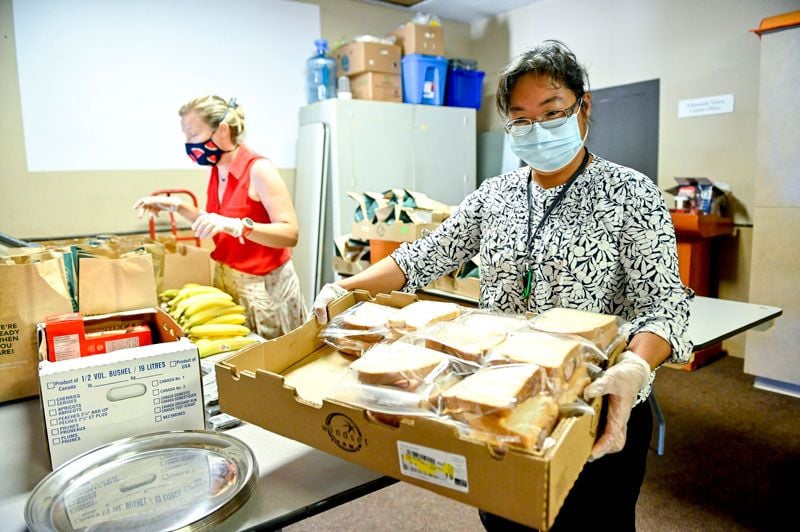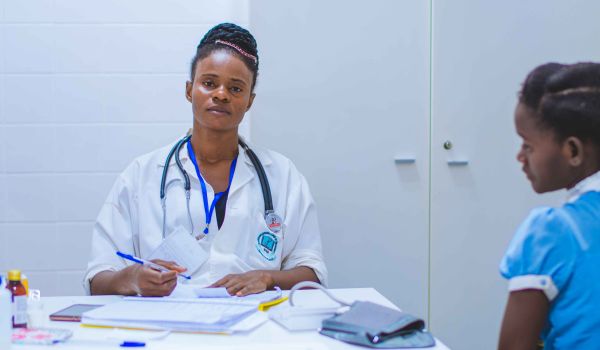What if you gave away $2 trillion…and it didn’t help the people who need it most?
That is the nightmare scenario we face if the unprecedented federal investments being made in response to the COVID-19 pandemic aren’t equitably distributed. Thanks to the historic American Rescue Plan and other federal interventions, there are significant new resources available for housing, homelessness and community development and the probability of substantially more funding through the American Jobs Plan and American Families Plan. While some of the American Rescue Plan support is in the form of direct payments, other funds – particularly those related to housing – require applications and approvals by agencies and local governments. The big challenge is ensuring the funding actually gets to the people and communities who need it most.
This is where philanthropy can play a crucial role. By deploying relatively small amounts of money, philanthropy can ensure these unprecedented federal resources make a huge difference in the lives of struggling Americans, as intended. Funders, local governments and community organizations must work together quickly and in new ways to ensure this funding realizes its transformational potential.
First, ensure people are aware of the funds. This is not a new dynamic with federal assistance: one in five people eligible for the Earned Income Tax Credit don’t claim it. With the federal eviction moratorium about to expire, we must help connect households with Emergency Rental Assistance to keep them in their homes. Funders can support community-based organizations, particularly organizations located in and providing services to communities of color, to get the word out. These trusted community organizations can encourage sign-ups among vulnerable populations who are often distrustful of government, but they are often under-resourced.
For example, Trinity Church Wall Street Philanthropies is supporting Chhaya Community Development’s Housing Security Emergency Fund to provide housing and financial counseling that connects South Asian and Indo-Caribbean tenants and homeowners in New York City to resources including emergency rental assistance. The race is on to help tenants access those funds before federal and state eviction moratoriums expire.
Second, offer help navigating the applications. Even once people know they are eligible, the applications and eligibility requirements are often confusing and burdensome. Riseboro Community Partnerships is another Trinity grantee that is helping people fill out emergency rental assistance applications through targeted case management, legal support and mediation with landlords. Organizations and local governments may also need capacity support to access funds. Significant amounts of the federal funding require communities to apply. Under-resourced communities that need the funding most may struggle, magnifying inequities.
Third, focus on advancing equity and building resilient communities. Funders can help communities reimagine their housing systems with capacity grants and technical assistance support. For example, the Partnership for Equitable and Resilient Communities is a newly formed public-private partnership between the Biden administration and philanthropic partners, anchored by the Melville Charitable Trust. The goal is to help 12 sites (cities, regions, tribal governments, etc.) advance housing justice and ensure equitable deployment of federal funds. Efforts include working with local community members and community-based organizations to identify long-term, sustainable system changes that will advance housing justice and solve homelessness; embedding staff in local government and providing robust, equity-focused technical assistance to help local sites leverage federal funds; and evaluating these efforts to understand who benefitted from investments and in what ways, and sharing learnings extensively with other communities interested in engaging in this work.
Fourth, fill the gaps. Many government assistance programs are designed with income cut-offs or other exclusions. In 2020, Enterprise Community Partners and others established Project Parachute to reach those not eligible for other forms of state and federal public assistance, including undocumented workers and those who are informally employed. Project Parachute raised more than $7 million in philanthropic funding from the Diane and Dorothy Brooks Foundation, Ford Foundation, The JPB Foundation, M&T Bank, Robin Hood, Trinity Church Wall Street, Wells Fargo, and the William J. and Dorothy K. O’Neill Foundation, as well as over $4.5 million in philanthropic support from more than 50 property owners. It’s a model of how philanthropy can work with nonprofits to harness the existing infrastructure of government programs while also expanding the pool to help people in need who would not otherwise qualify.
Fifth, support advocacy. Philanthropy must support advocacy to drive real, lasting change. The National Low Income Housing Coalition successfully advocated for a one-month extension of the federal eviction moratorium issued by the Centers for Disease Control and Prevention. This is a model of advocacy in action – and the additional month will allow many more tenants the chance to access rental assistance and avoid eviction. Philanthropy should robustly support organizations that use advocacy to meet their missions.
Sixth, advocate for a mindset shift from compliance and fraud prevention (driving some of those overly complicated application forms), to focus on quickly getting funds to those most in need. We can lead by changing our own applications and reporting, trusting our grantees and giving them as much flexibility as possible while they work under incredibly challenging circumstances.
This is a once-in-a-lifetime moment. Funders need to step up, and local government leaders should seize the opportunity to work with philanthropy to ensure mutual success. The scale of federal investment in people and communities is unprecedented since the New Deal and Great Society. This investment is vital in two ways: first, in helping our fellow Americans in need, particularly the Black and Brown communities hit hardest by COVID; and second, in proving that government can actually help people, combatting a dangerous, decades-long narrative saying it can’t or shouldn’t. If this extraordinary effort fails, it will be another two or more generations before we have another chance.
Beatriz De la Torre is the Managing Director for Housing & Homelessness at Trinity Church Wall Street Philanthropies.
Neill Coleman is the Executive Director for Housing & Homelessness at Trinity Church Wall Street Philanthropies.
Susan Thomas is the president of the Melville Charitable Trust.
















